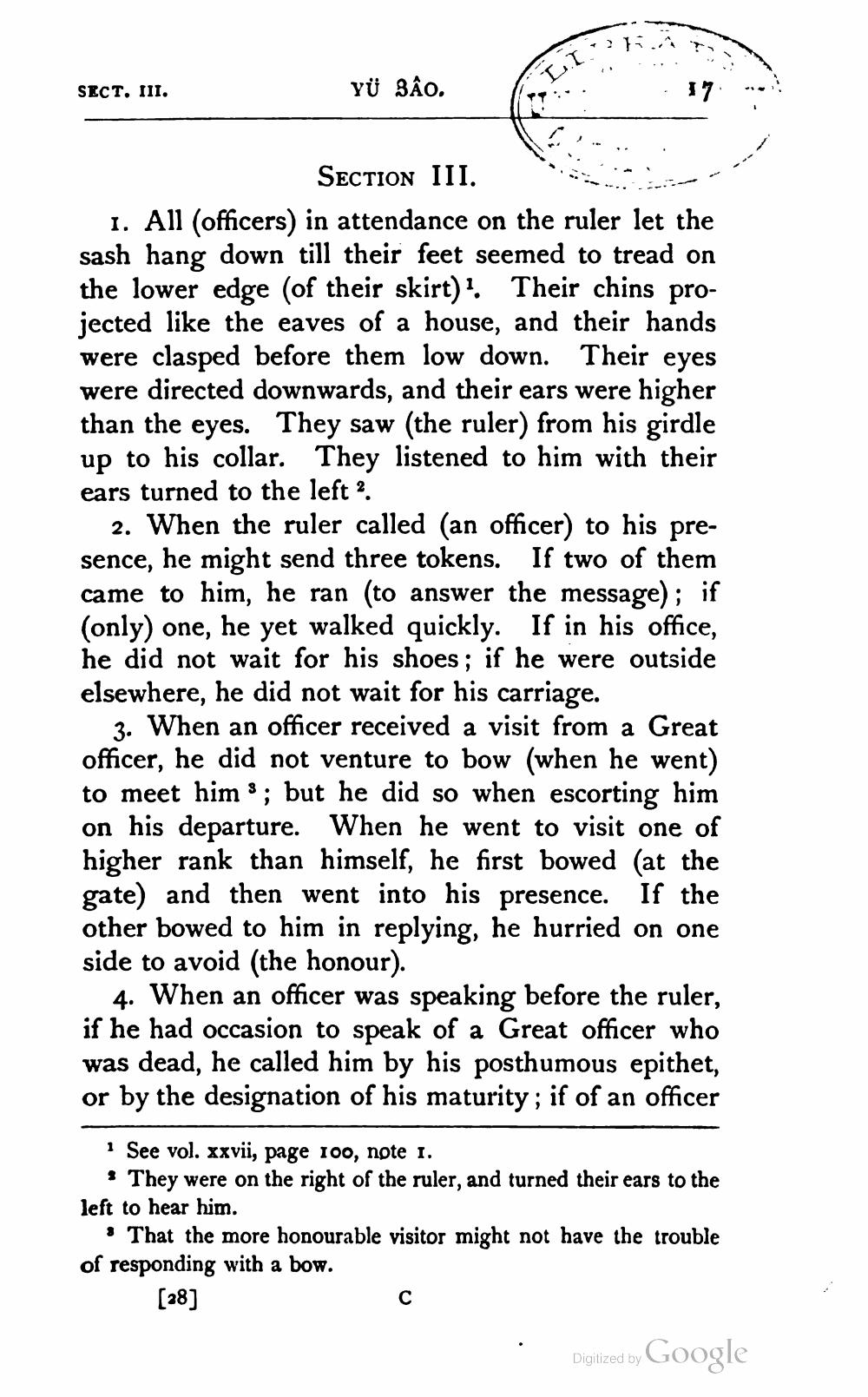________________
SECT. III.
YU SÂO.
LI
SECTION III.
1. All (officers) in attendance on the ruler let the sash hang down till their feet seemed to tread on the lower edge (of their skirt)1. Their chins projected like the eaves of a house, and their hands were clasped before them low down. Their eyes were directed downwards, and their ears were higher than the eyes. They saw (the ruler) from his girdle up to his collar. They listened to him with their ears turned to the left 2.
17
sence,
2. When the ruler called (an officer) to his prehe might send three tokens. If two of them came to him, he ran (to answer the message); if (only) one, he yet walked quickly. If in his office, he did not wait for his shoes; if he were outside elsewhere, he did not wait for his carriage.
3. When an officer received a visit from a Great officer, he did not venture to bow (when he went) to meet him ; but he did so when escorting him on his departure. When he went to visit one of higher rank than himself, he first bowed (at the gate) and then went into his presence. If the other bowed to him in replying, he hurried on one side to avoid (the honour).
4. When an officer was speaking before the ruler, if he had occasion to speak of a Great officer who was dead, he called him by his posthumous epithet, or by the designation of his maturity; if of an officer
1 See vol. xxvii, page 100, note I.
• They were on the right of the ruler, and turned their ears to the left to hear him.
C
That the more honourable visitor might not have the trouble of responding with a bow.
[28]
Digitized by
Google




